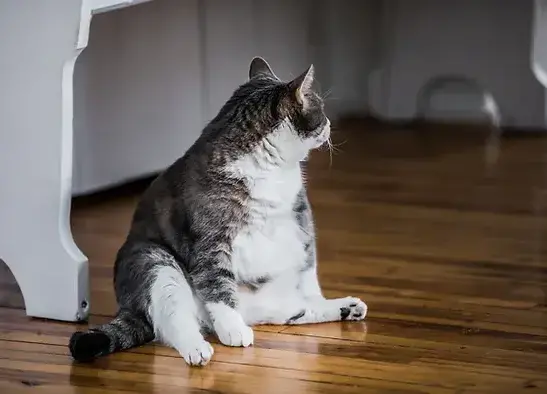
It's not only humans who struggle with their weight: our furry companions do too! But when does it become a health concern? How do we know if our pet is overweight and what are the consequences and ways to treat this problem?
Obesity in animals
It’s important to understand that obesity is an excess of fat in the body, which is usually due to excessive food intake and insufficient energy spend. Although there are no commonly accepted criteria for obesity in pets, pets are considered overweight when they weigh 10% to 30% more than their optimal body weight. There are several "home tests" to detect if your pet is obese, including the rib test:
Stand behind your pet and gently run your hands over the sides of his body. If you can't feel the ribs as you pass by and you can pinch off more than an inch of fat, your pet may very well be overweight – and maybe even obese.
The risks
Several complications can occur as a result of your pet's significant weight gain, including cardiovascular problems, several types of cancer, and other diseases such as diabetes, all of which have the effect of shortening life expectancy.
In addition, obese pets are also more likely to become lethargic, lack motivation, and make less of an effort to exercise, play or be active.
Prevention is better than cure
Unfortunately, there are no magic recipes for weight loss. Like humans, it all comes down to diet and exercise.
Adjusting food, measuring portions and feeding at set times can go a long way to controlling calories. Gradually reduce food portions to the recommended daily amount and according to weight loss goals. Be sure to consult your veterinarian before starting any diet with your pet.
Encouraging gradual physical activity, such as walking, running or swimming, is also beneficial to your pet's health. You can start with a few walks a week and increase the frequency and intensity as you progress. Again, your veterinarian is the best person to establish a plan that is well suited to your dog or cat's physical condition.
Finally, with good discipline and regular follow-ups at the vet's office, you'll make sure your dog or cat stays on track.
Conclusion
Obesity is a very real condition that can be quite harmful to our furry companions. By being well informed about the health impacts and ways to prevent it, you can not only help your companion regain a healthy weight but also maintain it. In any case, staying in touch with your veterinarian is the key to your pet's health.
